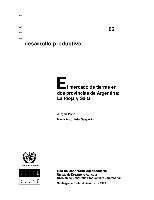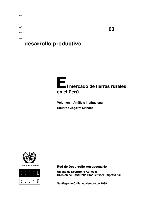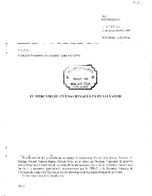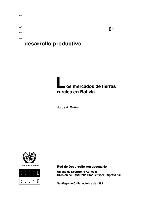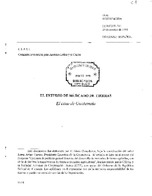Property rights, collective action, and technologies for natural resource management
"Degradation of natural resources has become a global problem that threatens the livelihood of millions of poor people. Many promising technologies for natural resource management are available to address these problems, but farmers and others often fail to adopt them. Why is this? Although many factors can be identified, lack of secure property rights and collective action deserve greater attention from policy makers and technology developers.




